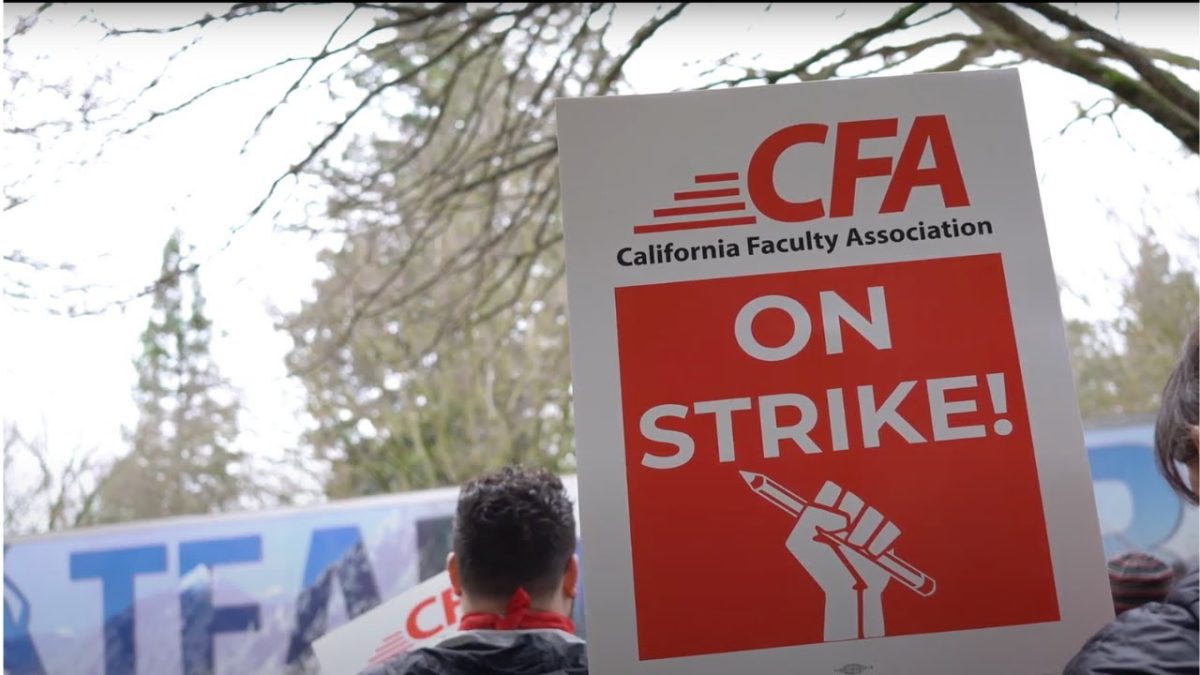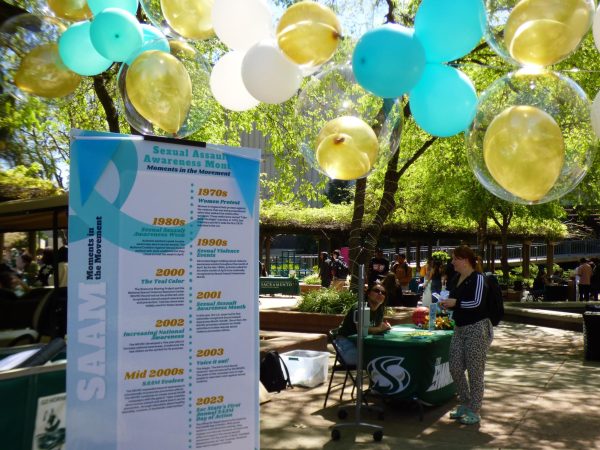Sticker shock at the gas pump
March 5, 2003
It didn’t hit me until I filled up my gas tank at College Town Chevron last week. The receipt said $27. That couldn’t be right. Just the week before that same tank cost $19.
While I wasn’t looking, someone jacked up the price for regular gas to nearly two dollars.
Now comes the talk from President George Bush, pushing for a new vehicle technology, hollering about another alternative energy source: the hydrogen fuel cell. And the media, like race hounds chasing after a mechanical rabbit at the dog track, believe him.
This happens every so often. We face a pending oil crisis, our leaders trot out some vague plan with cool technology that will end our co-dependence on foreign oil. Out pops the alternative energy rabbit. The press takes off! The public cheers!
Then the crisis is over, gas prices drift back down, the rabbit disappears. We keep using oil.
In the 1970’s, the rabbit was solar energy. In the 80s it was electic cars. In the 90s, it was the hybrid vehicles.
Yeah, right.
Now as we face another crisis with oil in Iraq, President George W. Bush says he wants automakers to build cars that use hydrogen fuel cells. It’s a great idea: cars that run on hydrogen and oxygen and produce no harmful emissions.
It’s a promising technology, but will it ever actually be realized? Probably not, especially while there’s still money to be made in oil. But by tossing $340 million a year at hydrogen fuel cell development, Bush can claim he’s interested in changing things. Out pops the mechanical rabbit.
Our dependence on foreign oil isn’t decreasing, either. We are continuing to build larger gas-guzzling vehicles that get less-than-average gas mileage. Our domestic supply of U.S. crude oil is at its lowest level since 1975, according to the Department of Energy. And, according to international petroleum experts, global supplies of crude oil are expected to peak as early as 2010.
Soon, a $27 receipt for a full tank might look pretty good, especially when the pipelines in the Middle East start drying up.
So, it looks like we’re fighting a war for oil wells that will soon run dry to support a technology–petroleum engines–that will soon be obsolete. It’s absurd.
When we know that we only have limited supplies of oil, approximately 60 years, why are we continuing to allow ourselves to be hostage to another country’s oil reserves?
Why would we spend billions of dollars on a war, sacrificing what could very well be thousands or hundreds of thousands of innocent lives, when we have the technology to be self-sufficient?
Why don’t we take the money that we are spending on war and nourish all of the world’s hungry?
Why don’t we revamp our whole transportation system to accommodate hydrogen fuel cell powered vehicles whose only emission is water?
If we want to retain our power in the world, why wouldn’t we want to be the first to enterprise a fully efficient, non polluting energy source?
The clock is ticking. Manufacturers such as Toyota, Honda, and Mercedes have begun work on fuel cell cars, but at the current rate of research and development, they are years from being available to the public at a reasonable price. It will take a long time to develop the infrastructure to support alternative energy vehicles. That’s why we must start now, putting more funds into fuel cell development. Bush’s proposal puts just enough money into R&D to bring out the mechanical rabbit. It needs to be more.
But, like anything else, politics rules our automobile policy. It is controlled by car manufacturers who do not want to spend the money to redesign and market new vehicles, and gas companies who have too much to lose if SUVs no longer use gas to fill up.
If we keep chasing after a new mechanical rabbit every time there is an oil crisis, as far as I see it, my children will be lucky if they live in a world where the economy has not completely collapsed because we have not planned for a future without fossil fuel.
Click here to send private feedback about this article to the State Hornet’s Forum staff.











































































































































